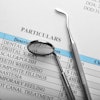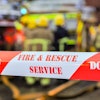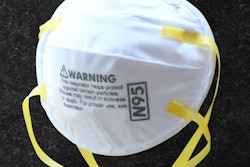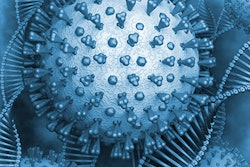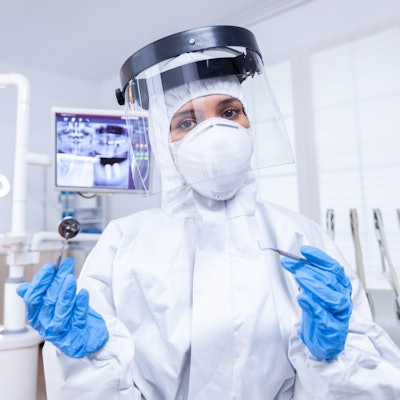
Continuous wear of N95 filtering facepiece respirators reduced blood oxygen saturation levels and increased the heart rates of dentists and dental assistants -- although the changes were within the range considered to be healthy, according to a July 17 paper in the British Journal of Oral and Maxillofacial Surgery.
Blood oxygen saturation levels (SpO2) and heart rate were more significantly affected in oral health professionals who wore N95 masks than in those who wore standard surgical masks, and the differences were heightened the longer staff kept their faces covered. Further studies are needed to determine how prolonged use affects dental team members who are older and have other morbidities, the authors wrote.
"In healthy young individuals, wearing an N95 FFR [filtering facepiece] for an extended period of time during clinical dental procedures reduced SpO2 level and increased heart rate compared to a standard surgical mask," wrote the group, led by Dr. Ibrahim Eid Alroudhan of Jouf University in Saudi Arabia.
During the pandemic, the U.S. Centers for Disease Control and Prevention, the ADA, and other organizations have recommended the use of respirators to protect dentists and their teams from occupational exposure to COVID-19. Recently, an emergency temporary standard from the Occupational Safety and Health Administration took effect, requiring dentists to wear respirators when performing aerosol-generating procedures on patients suspected or confirmed of having COVID-19.
Though respirators offer better protection against disease-carrying respiratory droplets than face masks, there is little evidence published about the side effects linked to prolonged use. Some who have stayed masked for extended periods have experienced problems, including headaches, hypoxia, and hypercapnia.
To better understand how continuous wearing of N95 respirators affects dental professionals, the researchers measured the SpO2 levels and heart rates of 51 dental workers while the workers performed dental procedures. The participants were healthy and between the ages of 23 and 31. Those who were pregnant, were smokers, or had any type of cardiopulmonary condition were excluded.
A pulse oximeter, which measures oxygen saturation and heart rate, was affixed to each person's finger or earlobe while he or she wore a respirator, and then while the person wore a mask. Assessments were taken for each after one, two, and three hours of continuous use, according to the authors.
When dentists and dental assistants wore N95 masks, their SpO2 levels were 2% lower than when they wore surgical masks, the researchers found.
| Blood oxygen saturation levels of masked dental workers | ||
| Mean value while wearing a surgical mask | Mean value while wearing an N95 mask | |
| Before wearing mask | 98.8% | 98.2% |
| 1 hour after wearing mask | 98.8% | 97.0% |
| 2 hours after wearing mask | 98.8% | 96.6% |
| 3 hours after wearing mask | 98.8% | 96.2% |
Though their oxygen saturation levels dropped, they remained in the healthy range of greater than 95%, the authors noted.
Also, wearing N95s significantly affected heart rate. After one hour, the average heart rate was 93 beats per minute with an N95 mask, compared with 73 beats per minute with a surgical mask.
| Heart rate (beats per minute) of masked dental workers | ||
| Mean value while wearing a surgical mask | Mean value while wearing an N95 mask | |
| Before wearing mask | 79.5 | 81.3 |
| 1 hour after wearing mask | 73.1 | 93.1 |
| 2 hours after wearing mask | 81.7 | 95.3 |
| 3 hours after wearing mask | 83.8 | 95.4 |
Though elevated, the heart rates remained within acceptable limits, according to the authors.
The study had some limitations; for example, the participants were young adults with average body mass indexes and capable of tolerating lower oxygen saturation levels and stress. Factors such as underlying medical conditions were not explored, the research team wrote.
As the pandemic continues, dental teams should be mindful of their health while wearing respirators for extended periods of time, Alroudhan and colleagues noted.
"Care must be taken by clinicians during physically intensive procedures, such as dental extractions, which may lead to further decline in SpO2 below critical levels, impeding cognitive ability, clinical judgement, and neuromuscular coordination," they concluded.


